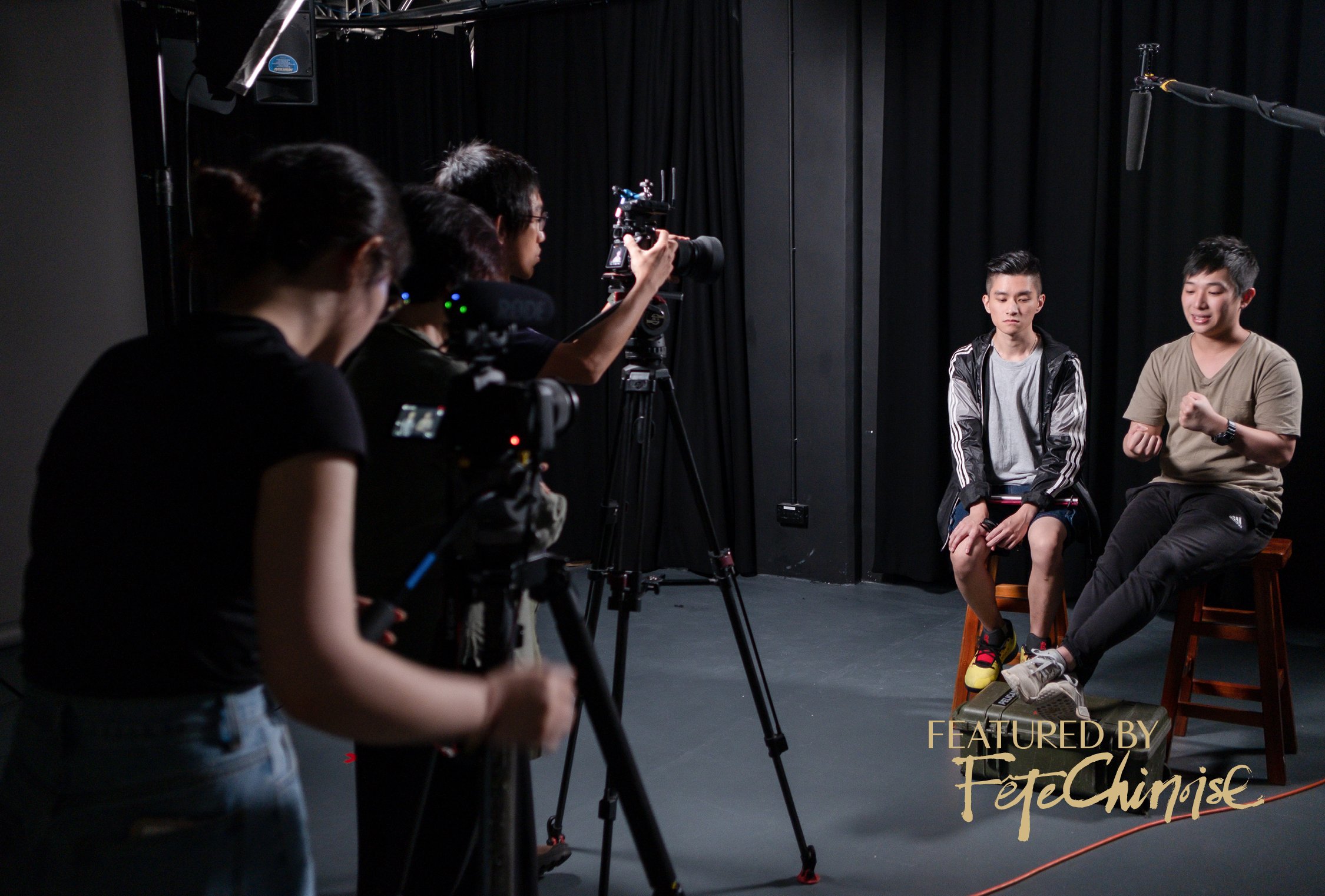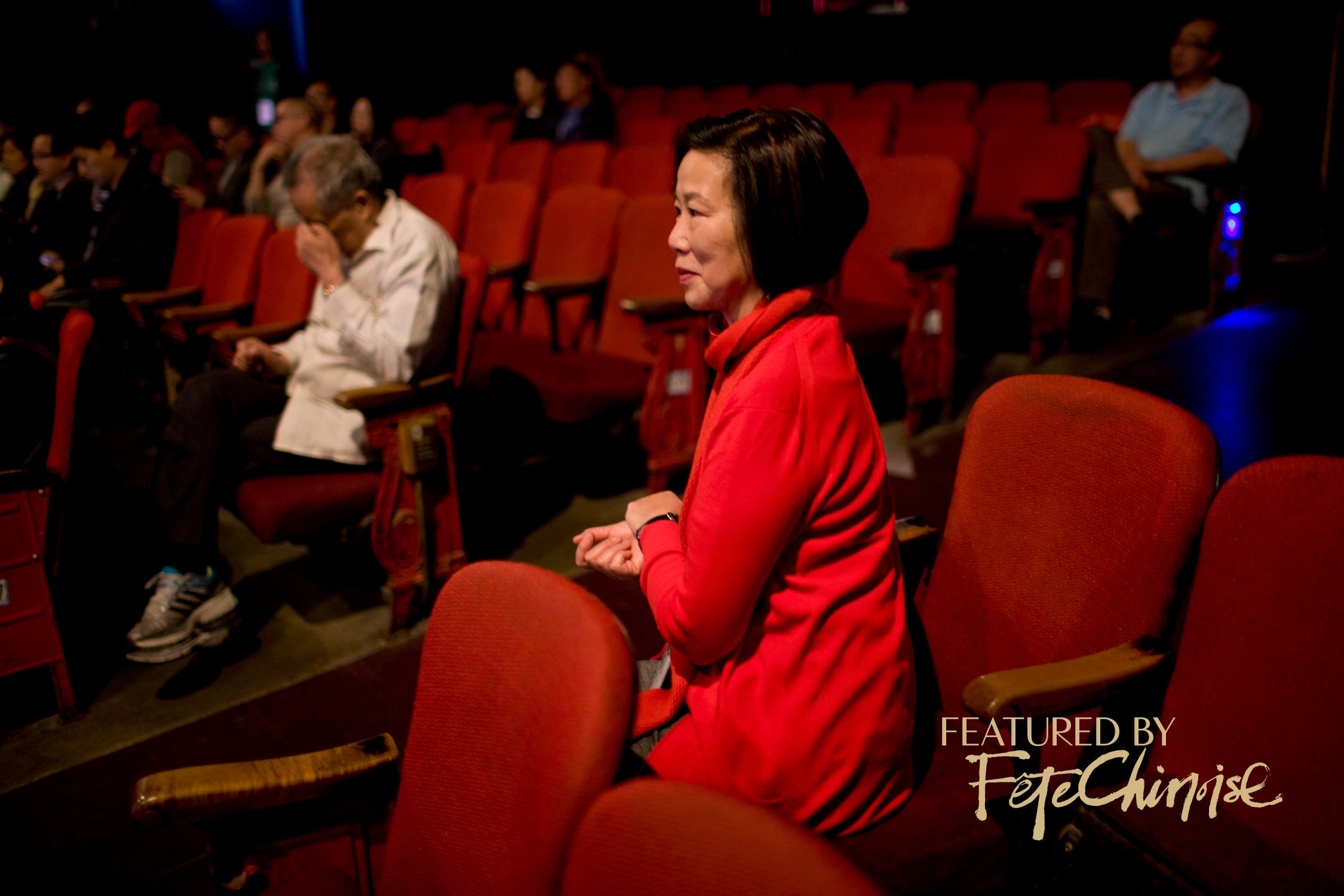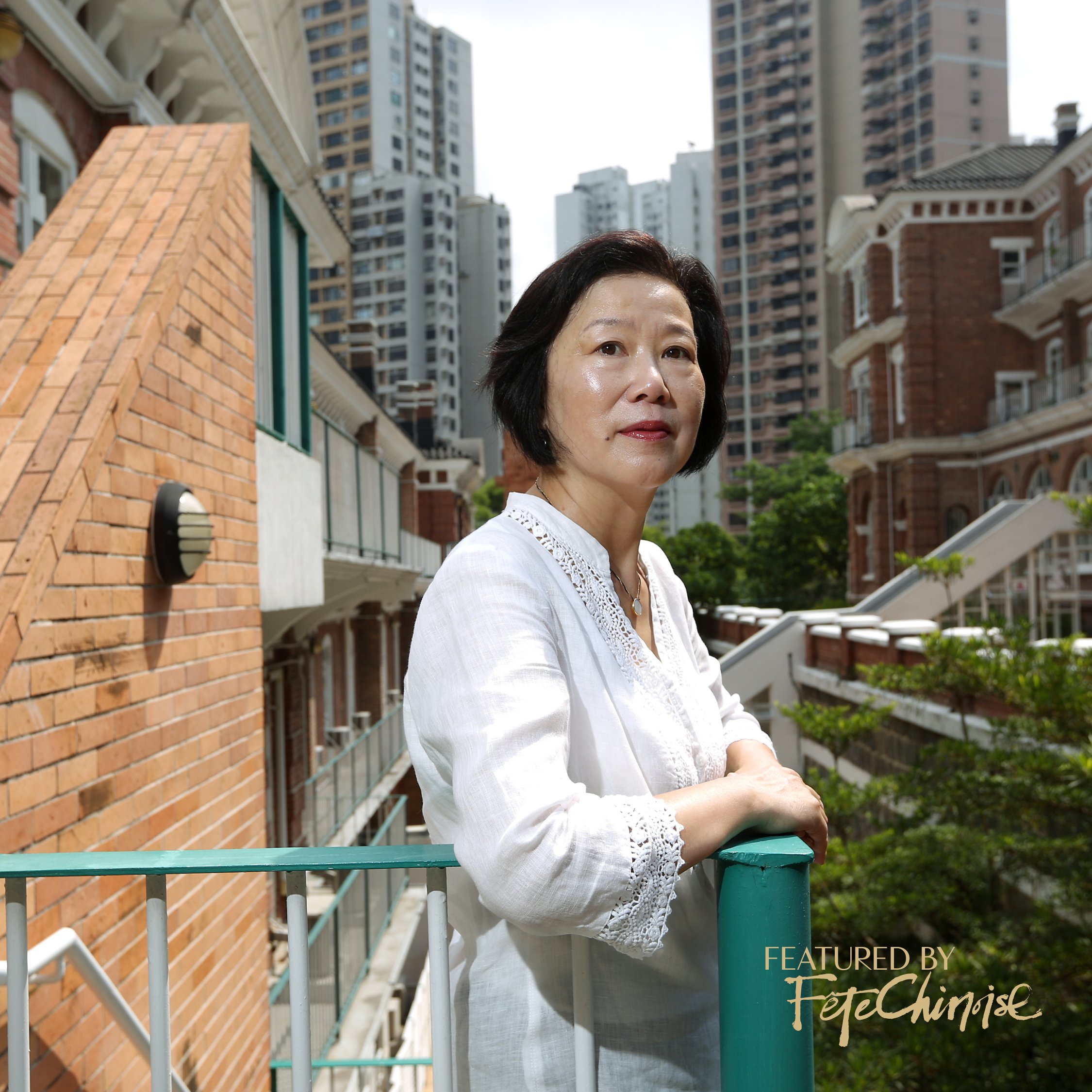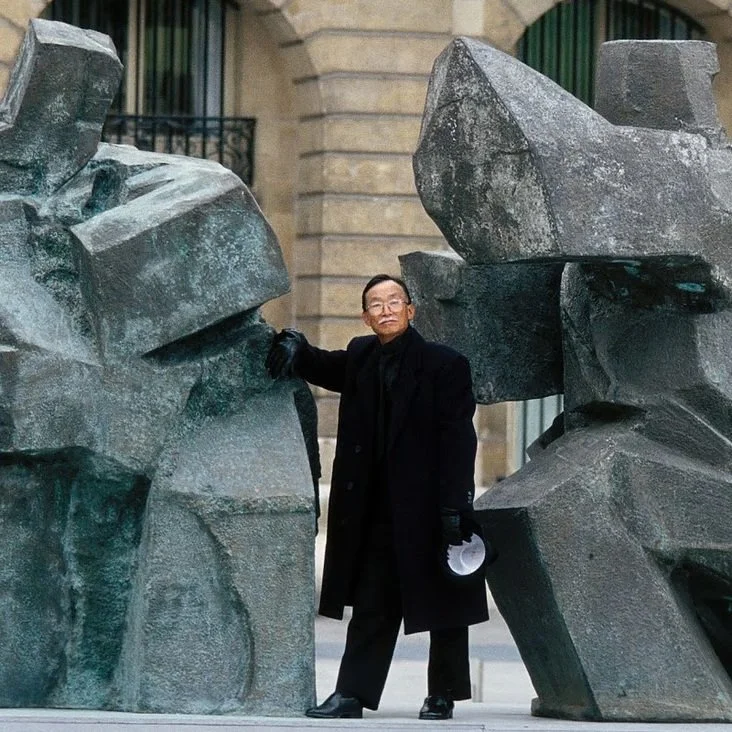Documentary Filmmaker Ruby Yang 楊紫燁: On Working With Time
Written by Fête Chinoise team
Translated by Mung Ting Chung
AS FEATURED IN EDITION NO. 6 OF FETE CHINOISE MAGAZINE: TIME + TEMPO
奧斯卡金像獎得獎導演楊紫燁,以一個紀錄片電影人的角度跟我們暢談她一路走來的人生、她作品中對於時間與節奏,還有她關於2019新冠肺炎的想法。楊導演目前為香港紀錄片拓展計劃的項目策劃人,同時也是2018年香港藝術發展局電影界別的藝術家年獎的得獎者。我們Fête Chinoise的編輯最初是在2019年宋軒麟執導,楊紫燁監製的《雙縫》(The Last Stitch)放映會上碰到面的。爾後,楊導演表示她曾見過由Fête Chinoise製作的關於加拿大華人文化的精彩活動。楊導演跟我們一樣,對於說故事、不同的文化論述及歷史有著同樣的熱情,我們也非常高興可以邀請到楊導演跟我們分享看法。
Unexpected Beginnings 意想不到的起點
Ruby Yang begins the friendly interview by self-identifying as an “accidental documentary filmmaker.” As a filial daughter in a traditional Chinese home, she understood that there were academic expectations for her and her brothers. As the youngest in the family, Yang benefitted from her brothers completing their degrees first and meeting all the expectations of her loving parents. By the age of 21, she wanted to do something for herself so she applied to the San Francisco Art Institute. That was the first turning point in her life.
訪問的一開始,楊紫燁就先跟我們說她會成為一名紀錄片導演完全是意料之外的事。出生在傳統中國家庭,以孝道為先的她深深明白父母對她和她的哥哥有著學業上的要求。作為家中最小的女兒,楊導演慶幸在她之前,她的兄長們都已大學畢業,也因此達成了來自父母大部分的殷切期許。到她二十一歲的時候,她決定為自己做一些事,因此報讀了舊金山藝術學院。這可說是她人生中的轉捩點。
San Francisco of the 70s offered an array of colourful experiences. Because of the liberalism at the time with remnants of the punk culture in the art scene, Yang opened her eyes to a different set of terms. Being the minority in the community as well as in her class — she was one of a total of 4 ethnic Chinese overseas students — she had taken an interest in film. (This is also where she would meet her husband.) She decided to end her pursuit of painting and applied to the MFA program. Surprisingly, her father was very supportive as he had aspired to be a poet in his younger days but had to forego that dream because of the second Sino-Japanese War.
七十年代的舊金山,生活多姿多彩。在自由主義的氣氛籠罩下,加上龐克文化在其時猶有餘溫,當時的藝術圈讓楊導演大開眼界。作為她自己的社群和班上的少數派—當時班上只有四名華人留學生—她開始對電影產生興趣(她正是在這裡遇上她丈夫的)。她決定不再修習繪畫,轉讀藝術碩士課程。讓人意外的是,她的父親非常支持她,因為他年輕時也曾夢想成為一名詩人,但因為第二次中日戰爭爆發的緣故而不得不中途放棄。
sponsored by piaget.
Ruby humbly describes her inaugural short film that garnered attention of the San Francsco Modern Art Museum: the point of no return for the young artist. Thereafter she would work in the Film Department at the Art Institute. During this time, she would engage with many forward-thinking artists including the pioneer of twentieth-century experimental film, Stan Brakhage (1933–2003). She worked in a post-production house and gained experience as a translator and assistant editor for films involving Cantonese in San Francisco. She was familiar with Wayne Wang, director of Joy Luck Club, Felicia Lowe, and other American filmmakers at the time. Yang also dabbled into feature film editing.
楊導演謙虛地述說了她的處女作如何獲得了舊金山現代藝術館的青睞。自此,這位年輕的創作者便一往無前了。之後,她在藝術學院的電影系工作。這時,她跟許多思想超前的藝術家合作,其中包括了二十世紀實驗電影的先驅者斯坦 布拉哈格(Stan Brakhage, 1933–2003)。她任職於一家後製公司,為舊金山的一些粵語電影擔任翻譯員和助理電影剪接師,從中累積了不少經驗。她跟《喜福會》的導演王穎(Wayne Wang),劉詠嫦(Felicia Lowe)和其他美國製片人相熟。她也開始涉獵劇情片的剪接工作。
In 1996, Ruby Yang was hoping to create her own documentary piece. In her own words, she was “dying to do my [her] own film.” This piece would be entitled “Citizen Hong Kong,” following five individuals in Hong Kong whom she befriended. Her first feature documentary would use the then-British colony, which was slated to be returned to Mainland China in 1997 as its foundation. The piece documenting the first post-colonial year of Hong Kong was funded by the Corporation for Public Broadcasting (CPB), the Center for Asian American Media, the National Endowment for the Arts, the Soros Documentary Fund, and the Sidney Stern Memorial Trust. In 1999, it was finally released. Thereafter, she produced an Oscar-winning documentary and numerous pieces on Hong Kong, San Francisco, and Tibetan communities in China over the next two decades.
在1996年,楊紫燁希望能創作屬於她自己的紀錄片。用她自己的話來說就是:「我想做自己的電影想得要命。」這個作品就是後來的《風雨故園》,一套有關楊導演所認識的五個香港人的故事。她的第一套紀錄片以當時還是英國殖民地,也是國際金融中心的香港為背景,捕捉了1997年即將回歸前的故事。這個紀錄了香港回歸後第一年的紀錄片由the Corporation for Public Broadcasting (CPB), the Center for Asian American Media, the National Endowment for the Arts, the Soros Documentary Fund, 以及 the Sidney Stern Memorial Trust共同資助。1999年,此作品正式上映。之後的二十年間,她製作出奧斯卡的得獎紀錄片,還有相當多關於香港、舊金山、中國的藏人群體的作品。
Cinema & Time 電影與時間
“You have to spend time to edit time. 你必須花時間去編輯時間。”
On the topic of time, we asked Ruby Yang to further explain the relationship between documentaries and time in her career. In a former interview at the Asia Society (Hong Kong Center), she explained the difference between narrative film and documentaries: “in narrative film, you have an actor who can act out a character’s development from young to old. In documentaries you see them grow. And this is the power of media and the camera.” Years later, she maintains that documentaries are about documenting time.
關於時間這個議題,我們進一步詢問了楊導演如何理解紀錄片和時間的關係。在過去跟Asia Society (Hong Kong Center)的一個訪問中,她曾解釋道劇情片跟紀錄片的根本分別在於:「在劇情片裡面,你可以找一個演員去把一個角色從年輕到老的過程給演出來。但是在紀錄片中,你將見到他們如何成長;而這正正就是電影作為媒體和鏡頭的力量。」若干年後,她依然堅持紀錄片就是關於紀錄時間的這一觀點。
A documentary filmmaker grows with the subjects and protagonists and then spends a year in their editing room. The process cannot be rushed. “You can edit time when you finish the film — that’s the magic in film.” Rather than the idea of working against time, documentarians are always working with time, attempting to condense time and find ways to tell time, which viewers then get to enjoy when watching the film.
關於時間這個議題,我們進一步詢問了楊導演如何理解紀錄片和時間的關係。在過去跟Asia Society (Hong Kong Center)的一個訪問中,她曾解釋道劇情片跟紀錄片的根本分別在於:「在劇情片裡面,你可以找一個演員去把一個角色從年輕到老的過程給演出來。但是在紀錄片中,你將見到他們如何成長;而這正正就是電影作為媒體和鏡頭的力量。」若干年後,她依然堅持紀錄片就是關於紀錄時間的這一觀點。
“You have to spend time to edit time,” Yang says. Cinéma vérité (or observational cinema) means to follow your protagonist and witness his or her changes during a certain period of time. Therefore, we are always working with time. She speaks her mind: “A good documentary usually requires a year with your subject to gain trust and observe their story. Throughout the process, there is something you want to tell. And time is the most crucial foundation for documentaries.”
這個過程不能著急。「你可以在電影完成後再來剪輯時間—這就是電影的神奇之處。」與其說是在跟時間對抗,紀錄片更像是在跟時間合作,嘗試去把時光濃縮,並找到述說時間的方式。如此,觀影者方能在看電影時得到最大的樂趣。
It also takes time to build relationships with her subjects. For her Oscar-winning documentary The Blood of Yingzhou District (2006), which exposed more about the AIDS outbreak in the eastern Chinese province of Anhui, she had to complete more research first because of funding and they needed to know the background of many of the film’s subjects. And for the Siemens-sponsored project based in Tibet, Ruby Yang completed a short film Norhula and a long film named Ritoma (2018) surrounding sustainability. After meeting with the co-founder of Norhula (a woman-focussed workshop working with yak wool) in 2012, they became friends and Yang returned again a few years later to complete the long feature film. Without doing the research first and establishing the relationship, she explains that it would be impossible to know what questions to ask or what to look for when the cameras are rolling.
她的奧斯卡得獎影片《潁州的孩子》(2006)則涉及了中國東部安徽省裡愛滋病爆發的一條村子。因為出資方需要對電影的主題有更多的了解,她為此片的資金籌集做了很多事前的研究資料。至於由西門子資助的計劃則是在西藏拍攝的。楊導演在西藏完成了短片Norhula和一部關於永續性的長片《仁多瑪》(2018)。在2012年跟Norhula(一個以女性為主的牦牛毛工作室)的創辦人會面後,楊紫燁跟她成為了朋友。數年之後,楊導演回來完成了這套劇情長片。如果當初沒有先做好資料搜集及建立起關係,楊導演認為那將很難知道什麼才是該問的問題,以及在攝影機轉動時該往哪裡看。
In the final stages of the editing process, it requires flexibility to the subject’s pace as the director. Ruby imparts cinematic wisdom: “Each person has their own timing; their movements are unique and how they move in their own space is unique. Each director will have their own preference but I would say my pace is of the ‘medium kind.’ Chinese films move really slowly — a deliberate choice to counter the Western way of time. For example, one scene could be a 10-minute take of someone walking. This is distinct from Western documentaries where there are many cuts, and lots of montage. Each director works with their own sense of time.”
在剪接工作的後期,作為導演,最重要的是配合拍攝對象的步調。楊紫燁以一種電影式的智慧說道:「每個人都有他們自己感知時間的方式。他們的動作是獨特的,至於他們如何在自己的空間裡移動更是獨一無二。每位導演都有著自己的喜好,而我會形容自己的步調為“中等的”。中國電影移動得特別慢—這是故意為之的,為的是要與西方的時間觀抗衡。舉例來說,一個十分鐘的鏡頭可能就只是一直在拍一個人在走路。這跟西方的紀錄片往往以多鏡頭分切、加入很多蒙太奇的習慣迥異。每位導演都有他們自己的時間感。」
Therefore, pacing in a film is like music and rhythm to Ruby Yang. “Everything is about rhythm. I like music a lot because it gives me some pacing. For some scenes I don’t need music, but I think in others, it is very important. In Tongzhi in Love (2008), music expressed the internal feelings of one of the homosexual male protagonists that could not be expressed otherwise. From my understanding, I would choose certain kinds of musical instruments to enhance feelings. I use music a lot, some people don’t use it at all. I think it’s fine to use music. You’re using real story, real facts to tell a story. If you just use real time, you have 400 hours. You have to condense the story. As a documentary filmmaker you are storytelling. The best way to tell the story is to edit and use your skills to enhance the emotion.”
因此,電影中的步調對於楊紫燁來說就好比音樂和節奏。「節奏就是一切。我喜歡音樂,因為它給予我一些步調的喘息空間。有一些場景,我並不需要音樂,但重要的是我可以用別的方式來思考。在《彼岸浮生》(2008)裡,音樂將一名男同性戀者難以言喻的感受表達了出來。我會選擇某些樂器來渲染感情。我自己大量運用音樂,但有些人則完全不使用。你正在調度真實的事件、事實來講述故事。如果以真實的時間來換算,那足足是四百小時。你必須把故事濃縮。作為一名紀錄片製作人,你做的事情正正是講述故事,而說故事的最佳方式就是透過剪接和你的技巧來增強情緒。」
On the Pandemic as a Filmmaker
作為一名製片人對新冠肺炎的看法
Ruby Yang will not be personally creating a film about COVID-19, however, she is mentoring her students to do so. Several young pupils in her documentary production class are covering the pandemic, the quarantine, and combining it with other social movements in Hong Kong. Her desire to work with and support youth is truly commendable. Her touching documentary film about underprivileged Hong Kong high school students performing in a live musical helped provide financial support for first-generation university students from less-advantaged Hong Kong families. During the gala premiere of My Voice, My Life (2014), she raised over $900,000 HKD for the University of Hong Kong’s First-in-the-Family Education Fund.
楊紫燁自己無意就新冠肺炎這題材拍片,但是她有的學生正在拍攝這個題材。幾個她紀錄片製作班上的學生現正著手於結合新冠肺炎、隔離、香港的社會運動有關的電影。她有意提掖後進並跟年輕人合作的精神實在值得稱讚。她其中一套關於香港草根階層高中生參與音樂劇的紀錄片,成功為一群香港的第一代大學生提供了經濟援助。在《爭氣》(2014)的首映禮上,她為香港大學的「第一代大學生助學金」共籌得超過港幣九十萬的善款。
As a filmmaker who sees herself as a friend to her subjects, Ruby believes that social distancing is a good thing but that people inherently need to connect. This is why she has always loved screening her work in front of an audience and having a Q&A session with them directly. “Humans are social beings and need to interact with one another,” she emphasizes. At the time of the interview, she hoped that things will return to normal soon.
作為一名將拍攝對象視作朋友的電影人,楊導演相信社交距離是好的,但人們實際上仍然需要連繫。這也解釋了為何她總是喜歡在觀眾面前放映她的作品,並且樂於在問答環節跟觀眾有直接的互動。她強調道:「人類都是社會性動物,需要跟別人有接觸。」在訪問的當下,她希望一切都能盡早回復正常。
While it’s too early to tell what positive effects the COVID-19 virus has had on society, Ruby believes that with people spending more time at home, the importance of family becomes very apparent. “Life is precious, and it is time to reflect on what one wants to do. What one’s priorities are.”
儘管現在去討論新冠肺炎對社會有什麼正面影響是言之過早,但楊紫燁相信隨著人們花更多時間在家,家庭的重要性會逐漸浮現。「生活是珍貴的,現在正是時候讓我們反思一個人想做些什麼,而人生的優先次序又該怎麼安排的時機。」
sponsored by piaget.



















The Vancouver Silent Auction site is now live! Explore various categories showcasing generous donations from our valued donors. Engage in bidding for your favourite items, supporting a great cause, and discovering an array of distinctive goods and exclusive experiences, ranging from home decor to fashionable apparel and accessories